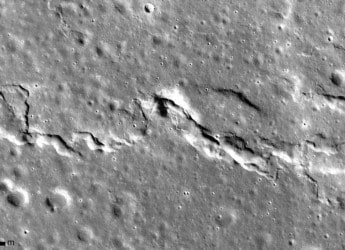- Home
- Transportation
- Transportation News
- Google Wins $179 Million Against Former Engineer Who Stole Trade Secrets
Google Wins $179 Million Against Former Engineer Who Stole Trade Secrets
Alphabet’s self-driving car unit Waymo filed a lawsuit against Uber in 2017, alleging that the stolen information became the technological basis for Uber's self-driving cars.
Google has won $179 million in a case against Anthony Levandowski, former star engineer who is charged with stealing Google's self-driving car secrets and moving on to join Uber Technologies. After the judge ordered Levandowski to pay $179 million to Google, the founder of autonomous vehicle startup Otto which Uber acquired later, filed for bankruptcy protection on Wednesday, reports TechCrunch.
"Levandowski personally filed for Chapter 11 bankruptcy, stating that the presumptive $179 million debt quite exceeds his assets, which he estimates at somewhere between $50 million and $100 million," the report said.
The case dates back to 2017 when Uber and Alphabet, Google's parent company, locked horns with each other over the latter's accusation on the ride-hailing app of stealing its self-driving technology.
Google's self-driving car unit Waymo filed a lawsuit against Uber in 2017, alleging that the stolen information became the technological basis for Uber's self-driving cars.
According to the lawsuit, Levandowski, who earlier headed its self-driving car project, downloaded around 14,000 files from his company-issued computer containing trade secrets related to Waymo's LIDAR technology, circuit board designs, and testing documentation.
The company also alleged that Levandowski tried to remove traces of those actions by reformatting his laptop.
Levandowski joined Uber after his stint at Google, where he shepherded the company's own self-driving car programme.
Get your daily dose of tech news, reviews, and insights, in under 80 characters on Gadgets 360 Turbo. Connect with fellow tech lovers on our Forum. Follow us on X, Facebook, WhatsApp, Threads and Google News for instant updates. Catch all the action on our YouTube channel.
Related Stories
- Samsung Galaxy Unpacked 2026
- iPhone 17 Pro Max
- ChatGPT
- iOS 26
- Laptop Under 50000
- Smartwatch Under 10000
- Apple Vision Pro
- Oneplus 12
- OnePlus Nord CE 3 Lite 5G
- iPhone 13
- Xiaomi 14 Pro
- Oppo Find N3
- Tecno Spark Go (2023)
- Realme V30
- Best Phones Under 25000
- Samsung Galaxy S24 Series
- Cryptocurrency
- iQoo 12
- Samsung Galaxy S24 Ultra
- Giottus
- Samsung Galaxy Z Flip 5
- Apple 'Scary Fast'
- Housefull 5
- GoPro Hero 12 Black Review
- Invincible Season 2
- JioGlass
- HD Ready TV
- Latest Mobile Phones
- Compare Phones
- Vivo V70
- Vivo V70 Elite
- Google Pixel 10a
- Tecno Camon 50
- Tecno Camon 50 Pro
- Lava Bold N2
- Vivo V60 Lite 4G
- Tecno Pova Curve 2 5G
- Asus Vivobook 16 (M1605NAQ)
- Asus Vivobook 15 (2026)
- Infinix Xpad 30E
- Brave Ark 2-in-1
- boAt Chrome Iris
- HMD Watch P1
- Xiaomi QLED TV X Pro 75
- Haier H5E Series
- Asus ROG Ally
- Nintendo Switch Lite
- Haier 1.6 Ton 5 Star Inverter Split AC (HSU19G-MZAID5BN-INV)
- Haier 1.6 Ton 5 Star Inverter Split AC (HSU19G-MZAIM5BN-INV)





![[Partner Content] OPPO Reno15 Series: AI Portrait Camera, Popout and First Compact Reno](https://www.gadgets360.com/static/mobile/images/spacer.png)









